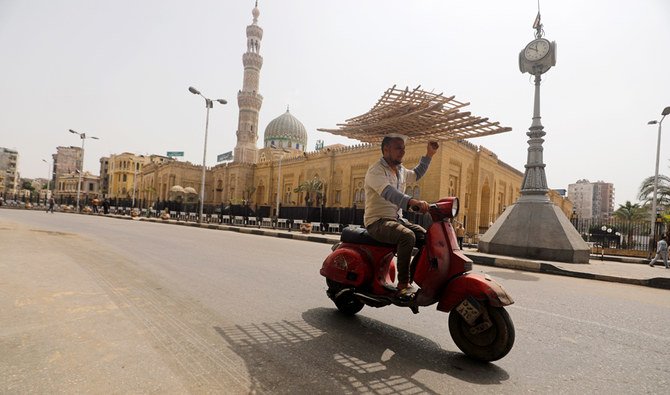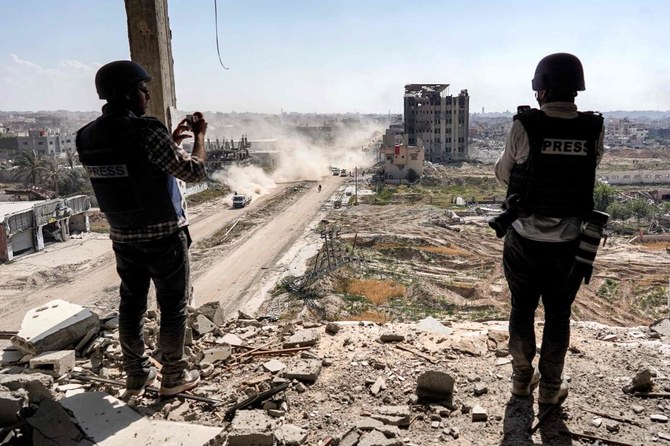CAIRO: People around the world are living in uncertain times as the coronavirus disease (COVID-19) continues to spread. Fatalities and infections are rising as cities and countries go into lockdown.
Egypt is under a partial lockdown, forcing people to stay, work and learn at home. Yet behind this massive change and a fear of the unknown, COVID-19 has brought advantages.
Ever since Egyptian President Abdel Fattah El-Sisi decided to close schools and universities for two weeks, starting on March 15, respect for the government has increased, especially on social media.
“Suddenly the government is laying down a series of preemptive actions to slow down the spread of the virus,” Mohamed Badr, 32, a Cairo resident, said. “They disregarded the economic impact and focused on the safety of the people which made us all proud.”
There have been diplomatic gains. China’s Ambassador to Cairo Liao Liqiang said that China and Egypt are partners and true friends, lauding Egypt’s support to Chinese efforts to combat the virus.
The Central Bank of Egypt has directed all local banks to delay the collection of credit liabilities for six months without any rates or fines.
The government’s order to shut down cafes and malls during curfew hours has led to a ban on the smoking of hookahs.
With fears over infections and with a dusk-to-dawn curfew in place, there is less consumption of unhealthy food.
There are fewer road accidents too. In 2018, there were 8,480 road accidents, according to the Bureau of Statistics. The number is expected to plunge this year due to the drop in vehicles on the road.
Working from home is the new normal. The culture of work from home is forcing its way in society as many learning technologies and cloud solutions are connecting homes and workplaces.
“When I used to invite people for a Zoom meeting they were surprised. Today, it’s a normal practice and many clients actually prefer this option,” a sales representative in Cairo said.
And with school and college students stuck at home, educational institutions have quickly taken up distance learning.
With millions of people now stuck in isolation, many are using the opportunity to get creative. Videos on social media show people developing hobbies, tricks, cooking skills and paintings.
Corporations are accelerating digital transformation. Several companies are racing to implement digital and cloud technologies to manage their businesses remotely. Several telco and financial institutions pushed their services online and through contact centers rather than branch visits.
Doctors are finally getting some credit. They have long called for better salaries and benefits but their requests have fallen on deaf ears. The virus has now brought some hope for a better package in the near future.
The environment is cleaner and less polluted. And now, everyone has more time to reflect.






















